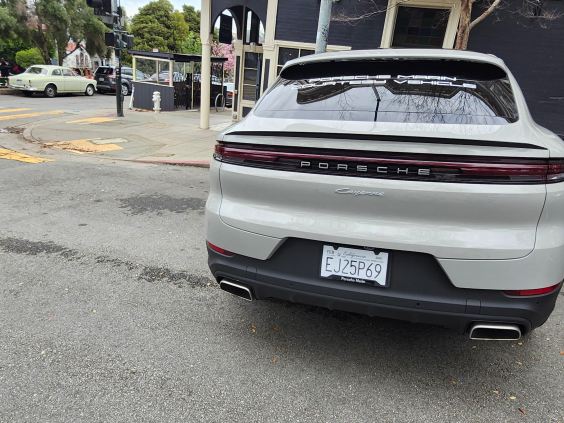It’s hard to argue against traffic safety programs with Damian Kevitt. The affable head of Streets Are For Everyone comes prepared with a litany of statistics and data when called upon to testify. His personal story as a survivor of a hit-and-run crash while bicycling in Los Angeles’ Griffith Park that saw him dragged for a quarter of a mile, putting him in a coma, and requiring part of his leg to be amputated adds a grave personal touch that draws lawmakers attention to whatever issue he’s discussing.
But at Monday’s Assembly Transportation hearing for Senate Bill 720, Kevitt was called upon only as an expert to explain the process that produced data demonstrating the need to reform and modernize red light camera laws in the state. Instead, another victim, of another crash, that also resulted in a coma and amputation spoke about his story to move lawmakers to support red light cameras.
“I've been a professional dancer in Los Angeles for over a decade, performing with artists like Katy, Perry, Sean Mendez and pink, to name a few, as well as a 4.0 student at UCLA, I had worked hard to build a career I loved and dreamed of continuing doing it for years to come,” testified Ty Wells.
“...but on April 3, 2022 those dreams were cut short as I was hit by an SUV that ran a red light. I was heading home from work. The crash gave me a diffuse axonal brain injury, meaning the communication wiring in my brain was completely torn and put me in a coma.”
SB 720’s author, Angelique Ashley (D-Sacramento), noted in her introduction of the legislation, that “hatred of red Light Cameras unites us across many fronts.” SB 720 is based on legislation in other states that makes it easier for governments to choose to install these cameras.
Most notably, the legislation shifts liability from drivers to vehicle owners, similar to parking and other vehicle fines. Points are no longer added to licenses and insurance companies will no longer be involved. The cameras will no longer need to take pictures of drivers.
The legislation also changes the way fines are collected ($100, $200, $250, $500 for first to fourth violations within three years), and adds a $50 late fee. Funds collected from the program will be reinvested in traffic safety.
Last, the legislation sets a requirement for how long yellow lights should last.
California will be either the last state, or second-to-last if the legislature and governor act quickly, to change red and yellow light regulations to the above standards. In states that have year-to-year data for comparisons, there has been roughly a 20% decrease in fatal crashes at red lights as camera programs grow.
SB 720, having already cleared the Senate, has now been passed by both the Assembly Transportation (Monday) and Privacy and Consumer Protection Committees (Wednesday). Its final hurdle before the Assembly floor is the Appropriations Committee which is scheduled to hear the bill in August. Assembly Appropriations Committee Chair Buffy Wicks (D-Berkeley) signed on to the legislation as a co-sponsor yesterday.
For more on SB 720 click here for an op/ed by Streets Are For Everyone written when the legislation was introduced.






